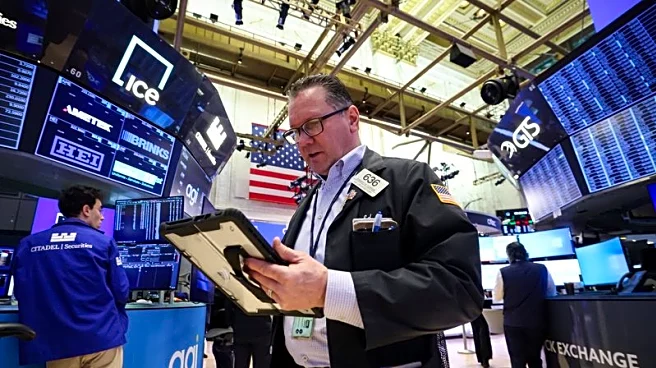Rapid Read • 8 min read
National Grid has announced the awarding of £12 billion in high-voltage direct current (HVDC) framework agreements as part of its initiative to modernize the UK's energy transmission infrastructure. This marks the final tranche of awards under National Grid's £59 billion supply chain frameworks for its Great Grid Upgrade program. The agreements aim to support major energy transition schemes, including potential work on the Eastern Green Link and LionLink projects. Companies such as Balfour Beatty, Bam Nuttall, Galliford Try, Laing O’Rourke, Skanska, and Taylor Woodrow have secured positions on the converter station civils framework, valued at approximately £9.07 billion. Additionally, Balfour Beatty, J. Murphy & Sons, and VolkerFitzpatrick were awarded positions on a separate £3.7 billion onshore cable civils framework. The frameworks are initially set for five years, with an option to extend for another three years.
AD
The awarding of these framework agreements is a significant step in the UK's efforts to transition to a net-zero energy grid by 2050. The investment is expected to meet rising electricity demand and create thousands of jobs, contributing to economic growth and sustainability. By broadening and strengthening the HVDC supply chain, National Grid aims to enhance the reliability and efficiency of the UK's energy infrastructure. The involvement of new market entrants, such as Japanese manufacturer Sumitomo, indicates a diversification of the supply chain, which could lead to increased innovation and competition in the sector.
The first tender under the new frameworks will cover southern civil works for Eastern Green Links 3 and 4. National Grid's strategy includes further supply chain commitments, such as an £8 billion transmission partnership and a preferred bidder announcement for subsea cable works on Sea Link. These developments are expected to continue driving the modernization of the UK's energy infrastructure, aligning with the country's long-term goals for energy security and sustainability.
The modernization of the UK's energy infrastructure through these framework agreements could have broader implications for the global energy sector. As countries worldwide strive to achieve net-zero emissions, the UK's approach may serve as a model for other nations. The focus on HVDC technology highlights the importance of efficient long-distance power transmission in achieving sustainable energy goals. Additionally, the creation of jobs and the involvement of international companies could foster international collaboration and knowledge exchange in the energy sector.
AD
More Stories You Might Enjoy













